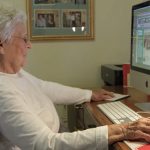 As society ages, the ability of senior citizens to stay as independent as possible is likely to be crucial to their physical and mental health and wellbeing. Various technological solutions have been tested and developed in recent years, but one of the more interesting has recently emerged from a partnership between the University of Alberta and software company Spxtrm AI.
As society ages, the ability of senior citizens to stay as independent as possible is likely to be crucial to their physical and mental health and wellbeing. Various technological solutions have been tested and developed in recent years, but one of the more interesting has recently emerged from a partnership between the University of Alberta and software company Spxtrm AI.
The team have developed an autonomous intelligence system that they believe will support greater independence, both in the individual’s own home and in care facilities. Their system utilizes a deep-learning based computer vision system combined with motion-classification algorithms to capture events, such as falls, in real-time. If events are detected, caregivers are alerted and healthcare professionals can provide a rapid and effective response.
Smart response
“Just-in-time action is needed for falls and other accidents in order to save lives, and only accurate and time-efficient algorithms can deliver real-time solutions,” the team explain. “It is impossible for humans to monitor these systems and detect the relevant information in real time as effectively as this autonomous system can.”
The system is also designed to ensure that the privacy of each individual is maintained as much as possible, whilst also ensuring that the most useful information is shared with caregivers to provide the best response.
Suffice to say, this kind of technology is not available to the vast majority of senior citizens today, and there is a long way to go before it is, but it is at least a sign of the progress being made.